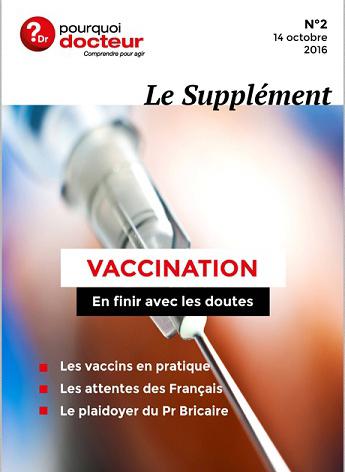The Council of State has ruled on the DT Polio file. The Ministry of Health has 6 months to force manufacturers to put the vaccine back on the market.

In six months, DT Polio will be back in pharmacies. The Council of State made his opinion this February 8. It confirms the position of the public rapporteur: this vaccine, which is the only compulsory in France, must be available without adding the other vaccine strains, which are recommended. The Ministry of Health has a period of one semester to implement the necessary measures. Today, only versions with 4, 5 or 6 valences are available in pharmacies.
At present, only three diseases are compulsory vaccination: diphtheria, tetanus and polio. But the vaccine which makes it possible to guard against it has not been marketed since 2008. The producers highlight a shortage of stock. The argument is not sufficient for the Council of State. The supreme court underlines a paradoxical situation which must be solved: the law “necessarily implies” that the DT Polio is accessible without brake.
Three possible measures
The ball is therefore in the court of the Ministry of Health. The cabinet of Marisol Touraine is forced to “make use of the powers at its disposal” by the decision of the Council of State. Three options are therefore open to the government. The first is to penalize laboratories if they do not respect their obligation – namely to organize an inventory management plan and prevent stockouts.
The ministry also has the possibility of opening the way to competition by calling on a ex officio license. The defense of public health makes it possible to activate this legal provision. The patent is then placed under the authority of the State, which manages its exploitation. This option would then open the market to laboratories that produce generic drugs.
The last option is to do Public Health France an authority figure. The agency can, if the ministry decides, buy, manufacture, import and distribute drugs whose marketing and production are considered insufficient.

A specific kit in place
The choice of the Ministry of Health does not matter, as long as it is made within the time limit set by the Council of State. This still leaves a loophole for the government: if the scope of compulsory vaccination widens, this opinion no longer takes effect. However, the situation could change, given the conclusions of the national consultation.
Once this step has been taken, the French paradox will be lightened. A “specific kit” has indeed been set up, but it is reserved for children who have a contraindication to the pertussis vaccine. The vaccines in question are imported from Canada. But several parents failed to obtain them from the Ministry of Health. It is moreover this refusal which justified the seizure of the Council of State.
The supreme court, on the other hand, rejected the arguments of the plaintiffs on the dangers of non-compulsory vaccinations. No proof is provided of this phenomenon, and the recommendations are justified by the seriousness of the diseases.

.















